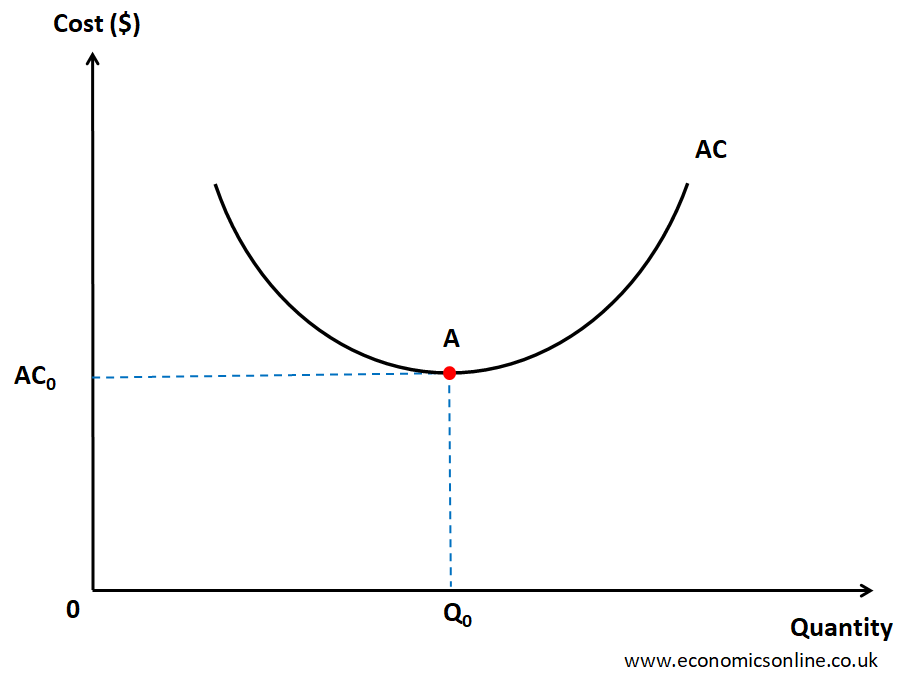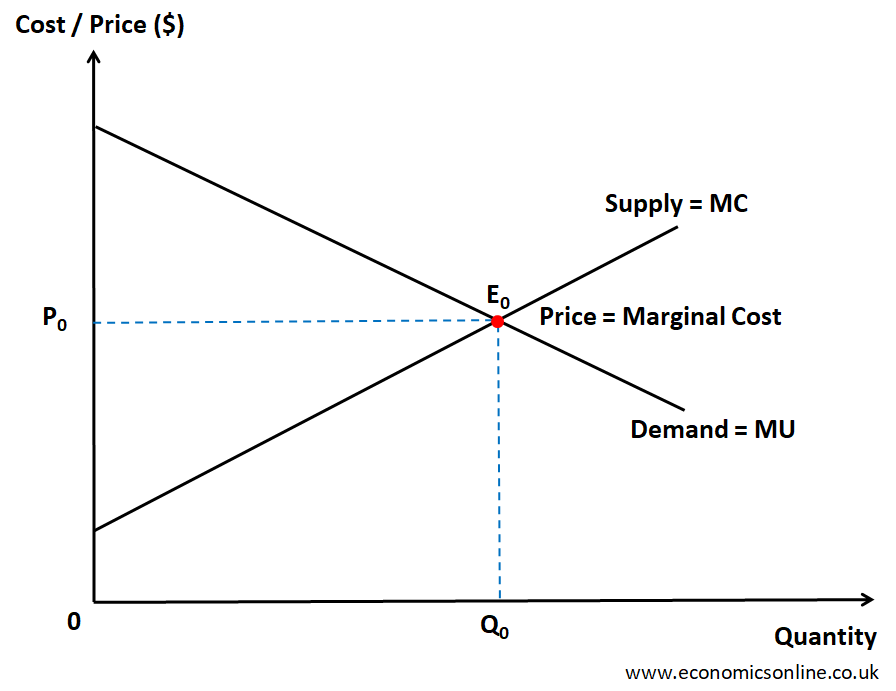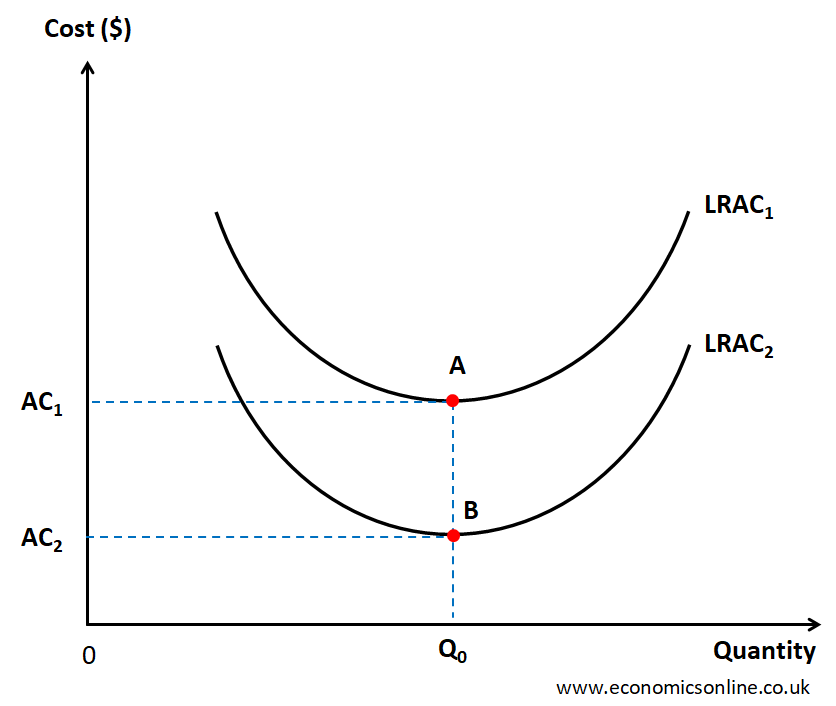
Photo by Federico Bottos / Unsplash
Economic Efficiency
What is Economic Efficiency?
Economic efficiency refers to a situation where scarce resources are used in the best possible way. It means that the maximum possible output is produced by using the least amount of resources, which is used to satisfy the maximum of infinite wants. This will lead to the maximum total satisfaction in the economy.
When economic efficiency exists, the following can be observed:
- Using the fewest inputs means the lowest possible cost of production.
- The maximum output is produced according to the wants of people.
- The maximum output produced can satisfy the maximum wants, which leads to an enhanced standard of living.
- Resources are allocated according to the desirability of society in the most efficient way.
- Economic efficiency means the best possible response to the economic problem of scarcity.
Why is Economic Efficiency Important?
All individuals, firms, countries, and societies face the fundamental economic problem of limited resources and unlimited wants. This basic economic problem of scarcity can never be completely solved as the resources will remain limited and they can never satisfy all of the unlimited and increasing wants of people. Yet, the maximum wants can be satisfied through economic efficiency. Economic efficiency and efficient resource allocation are important because they are always desirable in economics. It is because economic efficiency represents the best possible solution to the economic problem of limited resources and unlimited wants.
Understanding Economic Efficiency
To understand how economic efficiency works, there are several key points that ensure the efficient allocation of resources in an economy. These key principles are explained below:
Allocation of Resources
In economic efficiency, resources are allocated in a way that maximises output and social welfare. This means that one must direct the resources towards their productive use and minimise the wasteful or inefficient use of resources.
Productivity
Economic efficiency is related to productivity and technological advancements in a country. More output will be generated if we use improved manufacturing and production techniques through innovation and technological advancements.
Competition
Competition is necessary to operate firms efficiently in a country, to drive market forces through innovation, and to offer products to consumers at competitive prices. Competition encourages the efficient allocation of resources based on the supply and demand of goods or services.
Externalities and Market Failures
Externalities and market failures cause economic inefficiencies and put limitations in the efficient allocation of resources. Externalities are the positive and negative effects on the third party, while market failures happen when markets do not allocate resources correctly.
Types of Economic Efficiency
There are different types of economic efficiency, which are explained below:
Productive Efficiency
Productive efficiency is a type of economic efficiency in which the production of goods and services takes place at the lowest point of the lowest average cost curve, using the fewest resources.

In the above graph, we have taken the quantity or output on the horizontal axis (x-axis) and the cost on the vertical axis (y-axis). The lowest point (A) on the average cost curve (AC) shows the productive efficiency in a way that the output Q0 is being produced at the minimum average cost AC0.
Technical Efficiency
Technical efficiency is a component of productive efficiency, which means producing output at the lowest point of the average cost curve.
X-efficiency
X-efficiency is another component of productive efficiency, which means producing output at the lowest average cost curve.
Allocative Efficiency
In allocative efficiency, resources are allocated in such a way that the economic welfare of society is maximised by producing goods or services that meet consumer preferences.

In the above graph, the point E0 is the equilibrium point of the demand-supply curves at which the supply matches demand or the price is equal to the marginal cost (MC). The production of output Q0 shows allocative efficiency.
Dynamic Efficiency
Dynamics efficiency is a type of economic efficiency in which the ability of an economy to adapt to changes and innovation over time will lead to a reduction in the long-run average cost.

In the above graph, AC1 and AC2 are the average costs of two years that are required to produce the Q0 quantity of units required. LRAC1 and LRAC2 are the long-run average costs of both years, which indicate that over time the long-run average cost is reduced from LRAC1 to LRAC2, which indicates dynamic efficiency.
A firm, market or country can be dynamically efficient through
- R & D
- Human Development
- Investment in Technology
- Process Innovation
Static Efficiency
Static efficiency is a type of economic efficiency in which the efficiency is achieved at specific points in time rather than considering changes and adjustments over time.
Social Efficiency
As the name shows, this type of efficiency refers to the social welfare and overall well-being of a society. In this type of efficiency, both economic and social factors are taken into consideration.
Pareto Efficiency
A situation is called Pareto efficient if it is impossible to make someone better off without making someone else worse off. The points on the production possibility frontier show pareto efficiency.
Distributive Efficiency
It is a type of economic efficiency in the distribution of resources. It exists when the goods are distributed to those who value them the most.
Advantages of Economic Efficiency
The following are some major advantages of economic efficiency:
Better Utilisation of Resources
Economic efficiency ensures that there must be better utilisation of resources that are used optimally, resulting in reducing waste and maximising output.
Cost Reduction
Another benefit of economic efficiency is the reduction of costs. By eliminating inefficiencies, economic efficiency helps reduce costs. This will result in profitable businesses that encourage lower costs for their consumers.
Increased Productivity
Increased productivity is also a benefit of economic efficiency because it promotes the efficient allocation of resources. Higher productivity increases the production of goods or services with the resources provided.
Improved Economic Performance
Economic efficiency also contributes to improving the overall economic performance by promoting innovation and competition between firms, which leads to sustainable economic growth.
Disadvantages of Economic Efficiency
The following are some major disadvantages to economic efficiency:
Equity Concerns
Economic efficiency also has equity concerns because it doesn’t always give importance to the equitable distribution of resources, causing income inequality and social disparities.
Externalities
Economic efficiency also has negative impacts on the external environment or society, like pollution (air, water, and land) or social costs.
Qualitative Factors
Qualitative factors such as social welfare or culture preservation are neglected by economic efficiency because countries are striving for efficiency and only prioritising market values and neglecting non-market values.
Factors affecting Economic Efficiency
The following are some factors that affect the economic efficiency of a country or organisation:
Privatisation
Deciding on the order and importance of different privatization activities or investments can affect the efficiency of resource allocation.
Taxes
The amount, structure, and level of taxes affect the economic efficiency by affecting incentives for work, investments, and consumption.
Scarcity
Scarcity also affects economic efficiency because it refers to limited resources available in relation to demand, which drives the need for efficient allocation of resources and utilisation to make the most of what is available.
Economies of Scale
The reduction in long run average cost due to increase in the scale or size of firm or industry is called economies of scale. Firms become efficient by achieving economies of scale.
Advertising
Effective advertising can affect economic efficiency by providing information to consumers and promoting competition.
Conclusion
In conclusion, economic efficiency means the best possible allocation of scarce resources in terms of maximising output and social welfare. Economists consider the existence of economic efficiency as the best possible response to the fundamental economic problem of resource allocation. In economics, economic efficiency is considered a key concept that is applied to many other topics in order to achieve the best possible resource allocation.


